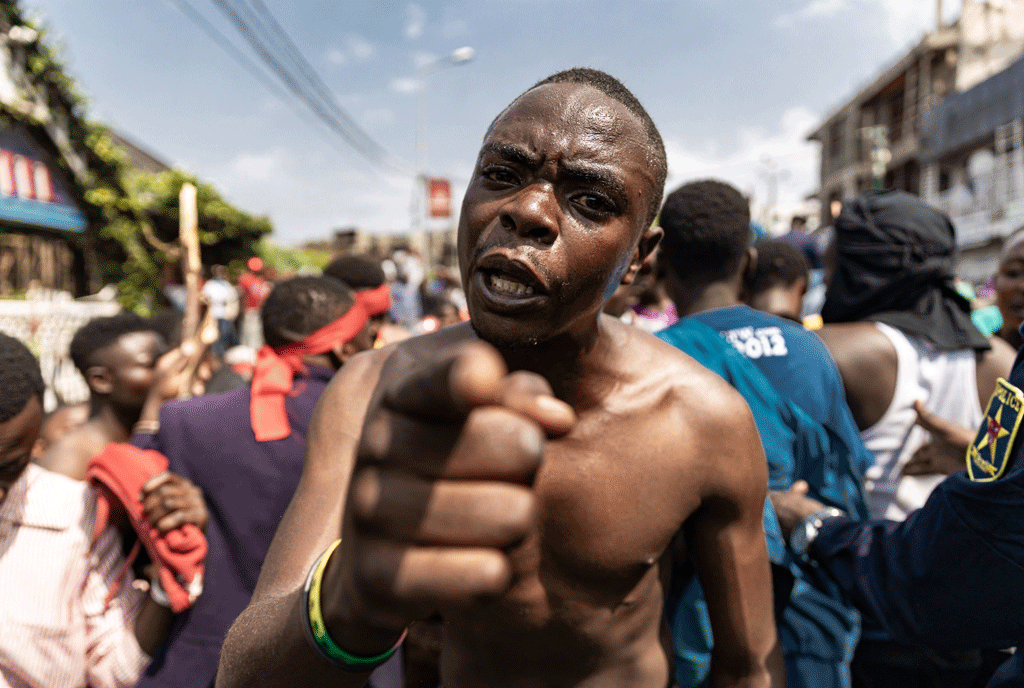Prime
Congo-M23 ceasefire fails

M23 rebel leader General Sultani Makenga. FILE PHOTO/ AFP
What you need to know:
- The EAC heads of State on Monday agreed on an immediate ceasefire in eastern DRC and that rebels begin withdrawing from captured positions.
The ceasefire between Democratic Republic of Congo troops and M23 rebels that was supposed to take effect immediately on Monday has failed as different parties make their own interpretations of the East African Community (EAC) heads of State Conclave resolutions.
The EAC heads of State on Monday agreed on an immediate ceasefire in eastern DRC and agreed that rebels begin withdrawing from their captured positions.
READ
But by yesterday evening, M23 rebels hadn’t withdrawn from the Bunagana border town, which they captured last week.
Instead, the rebel group, which the DRC government accuses of being supported by Rwanda, carried out an offensive on Kitagoma Town, another key Uganda-Congo border crossing, yesterday but they failed to capture it.
Maj Willy Ngoma, the spokesperson of the M23 rebels, said in a telephone interview yesterday that they will continue to hold the captured territory.
He also said their leaders will meet to discuss the resolution made by EAC leaders.
“We are still in charge of this area. We shall soon release a written document in response to the orders that were issued by the East African Community heads of State,” Maj Ngoma said.
M23 group later issued a statement but didn’t state whether they are committed to all the resolutions made by the EAC heads of State.
The group instead said they are committed to peaceful process of resolving the conflict.
Hours after the signing of the agreement, DRC President Felix Tshisekedi used his social media platform to indicate that the regional force will be deployed in weeks in eastern DRC, but it will not include Rwanda soldiers.
“Placed under the military command of Kenya, this force should be operational in the coming weeks and should not include within it elements of the Rwandan army,” President Tshisekedi tweeted on Monday night.
The third conclave was attended by presidents Yoweri Museveni of Uganda, Tshisekedi of DRC, Uhuru Kenyatta of Kenya, Évariste Ndayishimiye of Burundi, Paul Kagame of Rwanda and Salva Kiir of South Sudan, while Samia Suluhu Hassan of Tanzania was represented by High Commissioner John Steven Simbachawene.
The communique issued by President Kenyatta, who is the chairperson of the EAC, didn’t indicate which country would be part of the regional force to be deployed in eastern DRC.
Last week, Rwanda’s state minister for foreign affairs Prof Manasseh Nshuti said their military must be part of the regional force that will be deployed in eastern DRC since they have interests there like any other EAC member.
The decisions by the third conclave aren’t binding to the partner states. The EAC treaty under Article 124 and 125 allows cooperation between partner states on defence affairs and terrorism. The two articles allow partner states to cooperate in defence matters and fight terrorism.
President Tshisekedi issued a statement yesterday, saying he didn’t sign any agreement during the conclave in Nairobi, Kenya, and that his country still holds the same positions about Rwanda and M23 rebels as they did before the meeting.
Rwanda leaders, who attended the conclave, and Rwanda state media didn’t publish anything about the Nairobi conclave resolutions as they often do after having successful diplomatic meetings.
Implication
The blocking of the Bunagana border by M23 rebels has serious economic consequences to Uganda and Kenya’s economies since it is the main route that they use to transport goods worth over Shs2 trillion annually to and from eastern DRC. Uganda’s multibillion Bunagana-Goma road construction project, which is supposed to be an export game-changer, has also been disrupted by the fighting.




